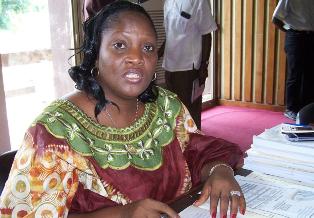Sub-standard Imported Goods – a Challenged the Liberian AdministrationMust Face Now.
The Liberian economy has overtime continued to signal some unbearable features characterized by a number of hasty political, but economically unviable decisions. While it is a well-known fact that Liberia’s major exports, iron ore and rubber have suffered some setbacks due to drastically fallen prices, economic and political decisions on interventions to either ensure stability or revival may be an attributing factor for the current down-ward trend in the economy.
The decision by the Government of Liberia, through the Central Bank of Liberia or CBL, to print new bank notes, including a new five Hundred Dollar bank note, with basic and extensive consultations and public information on current circulation of mutilated notes, as well as amounts to be printed, among other technical details may just be a constraining condition under which Liberians are about to find themselves ahead of the expiration of the current administration.
Despite the so-called concerns being raised by some members of the Legislature to include the Committee on Banking and Currency of the House of Representatives, what more patriotically better do the people of Liberia expect of their self-centered “representatives”.
To further crown such shortly expected exacerbated economic hardship in Liberia is the continuous uncontrollable price system and importation and sales of very sub-standard goods on the market.
Interestingly and unfortunately too, the conspicuous and inaction of the Government of Liberia to ensure proper, effective and efficient regulation of such goods/commodities on the Liberian market may not only be fostering and encouraging more proliferation, but resulting to the untimely ‘home-going’ of many Liberians.
It is no secret that the market is flooded with sub-standard imported rice, frozen meat and chickens and other food. Even machineries, textile and other clothing materials brought into the country by Lebanese, Indian, Chinese, Nigerians and other merchants and “investors” are very incomparable with those in neighboring Sierra Leone to say the least.
This is one of the major challenges the current government is yet to constructively confront in the interest of its poverty-stricken people – perhaps, owing to the sentiments and relations characterizing services at public institutions responsible for regulation.
[bsa_pro_ad_space id=1]
Whether it’s the Ministry of Commerce and Industry; whether it’s BIVAC; whether it is the National Standard Laboratory or whichever one may call it, it’s a complete messy system that must be overhauled and strengthened with managers and administrators whose execution of their respective mandates to regulate are directed toward patriotism and well-being of the people and not unnecessary “flamboyancies and overnight riches”.
For the next one year and a few months, the opportunity/challenge for President Ellen Johnson-Sirleaf is to “tie the black cloth on her face” now to truly leave behind an unending legacy in this direction by ensuring that her ministers and other officials responsible for regulating goods and services on the Liberian market implement/ execute policies on the books and not what ‘they personally think’.




















